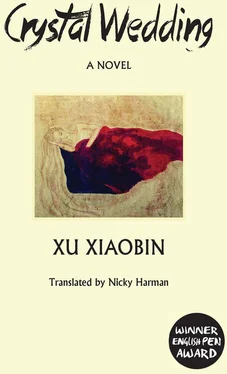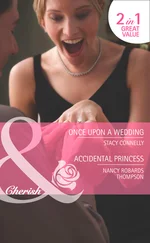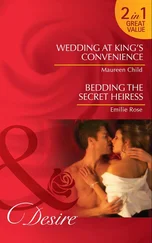Zheng was no longer the young man she remembered. He had arrived at middle age and, if you looked closely, there were signs of the struggle he had been through, that had worn him down and consumed him. It had left an indefinable mark on every pore of his body. Only his eyes were the same deep wells of goodness they had always been. Such great goodness, astonishingly still present after all his sufferings.
But Zheng clearly wanted to avoid saying a single word about that suffering, forestalling her with a barrage of words. She scarcely had a chance to get a word in edgeways. ‘Do you know when the Metropolitan Museum of Art was built? It was actually started in 1866 … right, and now it’s 1996, so it’s 130 years old this year. A group of Americans got together in a restaurant in the Bois de Boulogne, Paris, to celebrate ninety years since the Declaration of Independence, and at the banquet, the lawyer John Jay proposed building a “national institution and gallery of art”. This was to be America’s first museum and the proposal won unanimous acceptance …’
Zheng’s words came and went intermittently in Tianyi’s ears, as other visitors pushed by with muttered Excuse me’s. Instinctively, she took his hand and saw the corner of his mouth twitch. His hand was warm, but felt somehow petrified in hers. As she touched it, she wanted to cry.
At least she now had the opportunity to look at some of the paintings she most loved, and that helped to distract her. She suspected that Zheng had chosen this as a meeting place for that reason — she was unlikely to get too emotional and make a scene here. She caught sight of the painting by Henri Rousseau called Le Repas du Lion that had fascinated her since she was a young woman. Zheng helped her to push her way through and so that she could get a picture with the painting. She had first come across Rousseau at university at the beginning of the eighties. World Art, China’s most prestigious arts journal, had devoted an entire issue to his work. For the Chinese art world, closed off for so many years, Rousseau’s paintings were extraordinarily striking, and the artist had filled her dreams.
A forest of intense tropical colours, a white sun, just risen above the mountain, the tropical flowers and foliage, extraordinarily decorative, extraordinarily serene. A lion, half-hidden in the undergrowth, eating something. The whole painting was like a dreamscape, the branches and leaves so delicate they could have been cut out with scissors. She found it entrancing, too beautiful!
Afterwards, she learned about Rousseau’s life. He had kept his distance from painting schools, acknowledging no one as his teacher, although he had gone to Africa and been influenced by African art. His works had an utterly primitivist feel to them and he was eventually recognized in France as the archetypal primitivist painter. His paintings were rich in a primitive lyricism, and had a beauty filled with harmony and a decorative quality, creating a world that was quite unearthly.
There were many painters she liked — Gustave Moreau, Odilon Redon, Hieronymus Bosch, Reny Lohner, as well as Rousseau. Oddly, they shared one thing in common: they had not been famous in their lifetimes, only after their death.
Then came the Monet paintings. Apple Trees in Bloom reminded her of John Galsworthy’s story The Apple Tree . This was just how she imagined the scenery he described. The lush beautiful abundance of apple blossom!
Everybody knew that the name ‘impressionism’ had come from Monet’s painting Impression, Sunrise. Apparently, Monet’s early teacher was Eugène Louis Boudin. Then he got to know Renoir, Whistler and others, as they left their painting studios and went out into the woods and meadows to paint from life. Monet greatly respected Gustave Courbet and Manet and was entranced by scientific experiments on light and colour. She recalled an anecdote from a book on Impressionism. One day, when he had not painted for a whole day, Courbet asked him why. He replied; ‘I’m waiting for the sun.’ Apple Trees in Bloom must surely have been painted after the sun came out. The sunshine filtering through the mottled clouds created a charming dappled effect on the apple blossom. The shadows thrown by the brightly-lit blossom contrasted beautifully with the green grass.
‘ “I am waiting for the sun.” What a beautiful way to put it,’ she murmured.
‘What?’ Zheng asked.
‘I was saying thinking how beautifully Monet expressed it … “I am waiting for the sun”.’
She saw a shadow pass over his face. ‘Actually,’ he said, ‘waiting is anguish, whether you’re waiting for someone or for the sun.’
She looked hard at him. ‘You must miss your family a lot.’ He shot her a quick glance. She understood that look. He meant: What nonsense! But of course it was not nonsense. He was not made of iron, of course he missed his family.
And of course it was not only his family that he missed. He was someone who truly loved his native land. She was keenly aware that the minute he left that land, he was deracinated. He, who had been a luxuriant tree, had had his roots chopped away, and the only reason he had not died was that he had such vitality. The root runners still nourished him, but for how much longer?
‘You can go and see another exhibition if you like, there’s arms and armour, musical instruments, jewellery, not just drawings and paintings. I’m a bit tired, I’ll wait downstairs in the café, look, go down the lift there by the fountain.’
She went on walking around until the museum closed. The café downstairs was huge, open-plan and filled with beautiful green plants. The fountain sometimes spurted as far as the little tables, and there were statues too, made of metal. He was sitting there, deep in thought. She sat down next to him, and ordered an apple juice. It was as if they simultaneously became aware of the sunset sky in the west. ‘We aren’t waiting for the sun, we’re waiting for the sunset. And it’s beautiful,’ he said quietly.
They sat there, chatting. They talked of the rainy evening in Tiananmen Square in 1976 when they sang songs to commemorate the passing of Premier Zhou Enlai. They remembered eating peculiar-looking cream cakes at the Xinjiekou Street dairy products shop, and evening swims in the Miyun Reservoir … it all felt like yesterday yet twenty years had passed just like that. They were old now, sitting in the Met Museum in New York. She found it hard to take in.
‘You know what? Just yesterday, Song Meiling came on a visit here, at ninety-nine! She wanted to see the exhibits from the Taiwan National Palace Museum. I guess she saw this sunset too.’ She nodded. ‘Red sky in the morning, shepherd’s warning. Red sky at night, shepherd’s delight. Tomorrow should be nice.’ He nodded, too. Then he looked her in the eyes for the first time that day.
‘So you remember telling me I was the ultimate idealist?’
‘Of course … of course I do.’
‘You’re a good woman,’ he said.
‘And you’re a good man.’ Tears pricked her eyelids.
She was to take the last train to Boston late that evening. At the station, couples embraced and kissed goodbye. He and she kept their distance from each other, did not even look at each other, just exchanged a few meaningless words.
Suddenly, she said: ‘I love American ice-cream.’ He looked momentarily taken aback, then set off quickly down the escalator. Impassive, she watched him recede into the distance, a desolate figure. She felt a stab of anguish.
The train whistle had blown when Zheng finally returned, bearing a large tub of icecream, and quickly pushed it into her hand. In the instant that he turned away, she saw he was fighting back tears. She felt as if she was drowning, and her memories of the rest of the evening were blotted out.
Читать дальше












